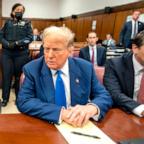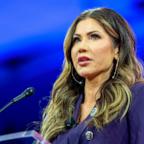Analysis: Obama's Inaugural Address Spoke to Younger, Browner Nation
Public opinion has shifted on issues like gay rights and immigration.
Jan. 22, 2013— -- President Barack Obama's second inaugural address is being pegged as the emergence of a "liberal" Obama who is prepared to wade into controversial social issues that were largely left on the shelf during his first term.
"This was no centrist conciliator. It was the speech of a committed, unapologetic progressive, an Obama doctrine for domestic policy that included concrete commitments in areas he made little progress on over his first four years," wrote ABC News' Rick Klein on Tuesday. "Above all, he was speaking to a changing America – the nation that propelled him to a second term, and whose voices he will need to channel to be effective over the next four years."
Obama's forcefulness on issues like gay rights, immigration, climate change and gun control was somewhat unexpected and Republicans blasted the address as overly partisan.
But the divide may have less to do with political parties and more to do with demographics. Young people and minorities, groups that largely supported Obama, view issues like gay rights and immigration differently than voters who are older and white. And they might even be driving change among the general public.
Here are some numbers that illustrate how quickly this shift has taken place:
Gay Rights
"Our journey is not complete until our gay brothers and sisters are treated like anyone else under the law – for if we are truly created equal, then surely the love we commit to one another must be equal as well." -- President Obama.
It's believed that President Obama is the first president to mention gay rights in an inaugural address. That's an indicator of the nation's rapidly changing views on the topic.
An NBC News/Wall Street Journal poll conducted in Dec. 2012 showed that 51 percent of Americans support gay marriage. That's up from just 30 percent in 2004, as NBC's Mark Murray noted this morning.
Young people have long been more accepting of gay rights than the rest of the country. A poll by USA Today/Gallup showed that 73 percent of Americans between the ages of 18 and 29 say gays and lesbians should be able to marry. But older Americans also appear to be changing their views. Over one third of all respondents say their views have changed significantly on gay marriage and 53 percent now support it, while 46 percent oppose it. In 1996, a Gallup poll found that the public opposed same-sex marriage 68-27 percent.
Political observers believe that young people have driven the shift in public opinion over the past decade or more.
"They could say it's now safe to look at this because there is something like an emerging consensus," conservative columnist George F. Will said on ABC's "This Week" in December. "Quite literally, the opposition to gay marriage is dying. It's old people."
That shift also includes groups that are typically thought of as holding "traditional values" on social issues. Fifty-five percent of Latino voters, 71 percent of whom backed Obama in 2012, said in a May NBC poll that they back gay marriage. At the time, that percentage exceeded white support for gay marriage by seven percentage points.
"Hispanics are actually much less likely than whites to vote on the basis of cultural issues," demographer Ruy Teixeira, a senior fellow at the liberal Center for American Progress, wrote for Univision News at the time. "Thus, even where they are relatively conservative on issues such as abortion, they are not likely to align their vote with their view on that issue."




